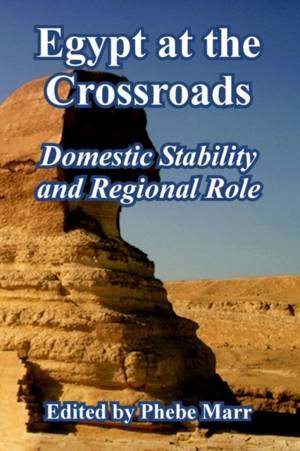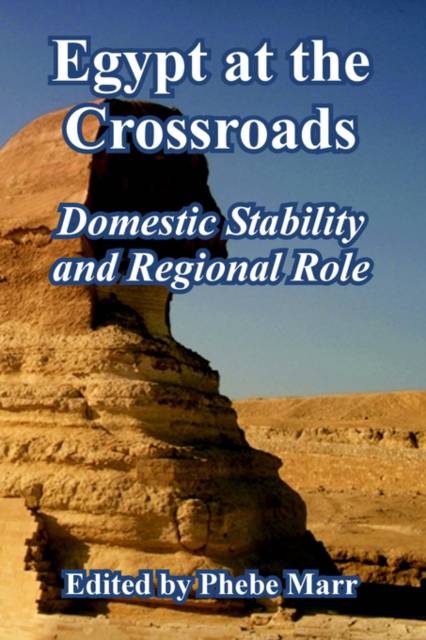
Je cadeautjes zeker op tijd in huis hebben voor de feestdagen? Kom langs in onze winkels en vind het perfecte geschenk!
- Afhalen na 1 uur in een winkel met voorraad
- Gratis thuislevering in België vanaf € 30
- Ruim aanbod met 7 miljoen producten
Je cadeautjes zeker op tijd in huis hebben voor de feestdagen? Kom langs in onze winkels en vind het perfecte geschenk!
- Afhalen na 1 uur in een winkel met voorraad
- Gratis thuislevering in België vanaf € 30
- Ruim aanbod met 7 miljoen producten
Zoeken
€ 27,45
+ 54 punten
Omschrijving
This book is an outgrowth of a collaborative effort of two strategic studies centers, the Institute for National Strategic Studies at the National Defense University in Washington, and the National Center for Middle East Studies in Cairo, Egypt. Over a period of several years, a group of colleagues connected with these institutes has been engaged in conferences and discussions focusing on the future of Egypt and the U.S.-Egyptian relationship in the changing security environment of the post-Cold War Middle East. This volume, the fruit of those labors, brings together the work of a distinguished group of Egyptians and Americans, combining the research efforts and long practical experience of authors of diverse backgrounds, including academics, military professionals, economists, and policy makers. Authors originally prepared their papers for two conferences, one on Egypt's domestic stability held in Washington, the other on Egypt's regional role, held in Cairo; their work has been updated to reflect changing events. Egypt has a seminal role as a Middle East actor and is central in U.S. strategic planning on the Middle East. Because of Egypt's influence in the Arab and Islamic worlds, it is of paramount importance that Egypt remain a force for moderation. Any dramatic change in Egypt's position could alter the regional balance of power and the existing favorable security environment. Egypt's regional role as a moderating element depends on its domestic tranquility and its economic health. As authors in this volume emphasize, the domestic and regional aspects of Egypt's policy are inextricably linked. Without a reasonably sound economy and political stability, Egypt will be unable to undertake an active regional role. The reverse is also true-an active peace process and a growing regional economy are essential for Egypt's stability at home. The combined essays tie together three essential components of the U.S.-Egyptian equation. The first part addresses domestic issues in Egypt and the prospects for Egypt's continued political stability. The second section concentrates on Egypt's regional role in the new post-Cold War environment. The third part looks at the future of the U.S.-Egyptian partnership. Authors have probed the underlying factors likely to persist well into the 21st century, rather than dwelling on episodic changes that may dominate tomorrow's headlines. It is hoped that exploration of these fundamental aspects of Egypt and the U.S.-Egyptian relationship will provide a sense of the forces at work in the region and of the issues with which U.S. strategists will have to grapple over the next decade.
Specificaties
Betrokkenen
- Auteur(s):
- Uitgeverij:
Inhoud
- Aantal bladzijden:
- 280
- Taal:
- Engels
Eigenschappen
- Productcode (EAN):
- 9781410224781
- Verschijningsdatum:
- 29/06/2005
- Uitvoering:
- Paperback
- Formaat:
- Trade paperback (VS)
- Afmetingen:
- 152 mm x 229 mm
- Gewicht:
- 412 g

Alleen bij Standaard Boekhandel
+ 54 punten op je klantenkaart van Standaard Boekhandel
Beoordelingen
We publiceren alleen reviews die voldoen aan de voorwaarden voor reviews. Bekijk onze voorwaarden voor reviews.









